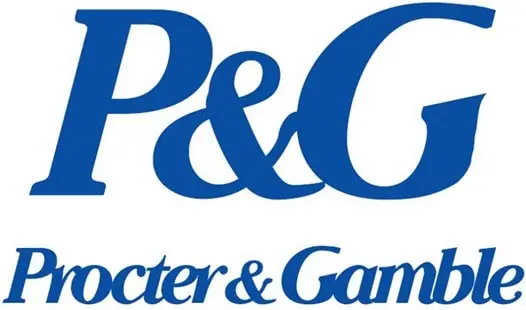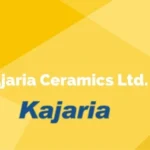You see, in the Consumer Non-Durables field, we can only include the company that makes the products that are for immediate use or almost immediate use, so, as a customer, you’d have to buy them again. That’s pretty much the Consumer Non-Durables field, and if you are wondering what companies are in the consumer non-durable field, then keep on reading because that’s what we are onto today. We have done a thorough research and put together a list of the top 10 companies in the consumer non-durables field for 2024. So yeah, let’s cut this intro thing and get to the actual stuff. Here we go.
1. Procter & Gamble Company

- Market Cap: $345.38 billion
So, P&G, short for Procter & Gamble, has been shaking up our daily routine since 1837. That’s when two guys, William Procter and James Gamble, got together to whip up soap and candles. They hit it big during the Civil War, supplying the Union Army and making a name for themselves. Over time, P&G dropped some awesome products, like the Ivory soap that actually floats and the kitchen fav, Crisco. Fast forward to today, and P&G’s got a ton of stuff for your health, beauty, and home needs. They’re all about making you look and feel great and keeping your home spotless. But yeah, it’s not just products they’re into. P&G is also big on helping people out. They’ve done some pretty cool campaigns, like “Always #LikeAGirl” and “Tide Loads of Hope,” lending a hand during natural disasters.
2. Coca-Cola Company
- Market Cap: $254.78 billion
Way back in 1886, a guy named Dr. John Pemberton mixed up this special syrup in Atlanta. They started serving it at Jacobs’ Pharmacy and called it a tonic with stuff like coca leaf and kola nut. The catchy name “Coca-Cola” and that classic script? That was all Frank Robinson, the bookkeeper’s idea. Zoom to today, and Coca-Cola’s gone from just nine drinks a day to a worldwide icon. By 1900, they were selling tons of syrup and kicked off the whole bottling business in 1899. Now, Coca-Cola’s leading the drink game globally with over 2,800 products in more than 200 countries. They’ve got way more than just Coke, with a whole range of beverages.
3. PepsiCo, Inc.
- Market Cap: $233.51 billion
PepsiCo, that big name in American food and drinks you definitely know, started in 1898 with Caleb Bradham creating Pepsi. It was a hit, so in 1902, the Pepsi-Cola Company kicked off. Jump to 1965, and they teamed up with Frito-Lay, becoming the snack and soda giants we know today. PepsiCo’s got a massive lineup of stuff we all love, like Lay’s, Doritos, Gatorade, Tropicana juice, and Quaker Oats. They’re a big player in the food and drink world. They’re what you call a “consumer non-durables company,” meaning their stuff gets eaten or drunk fast, so you keep coming back for more. Recently, there’s been some chatter about their environmental impact and how healthy their products are. They’re supposedly working on it, but the full scoop isn’t out yet.
4. Nike, Inc.
- Market Cap: $165.23 billion
Nike, the top player in sporty stuff, kicked off as Blue Ribbon Sports back in 1964, founded by Bill Bowerman and Phil Knight. In 1971, they rebranded to Nike, Inc., taking a hint from the Greek goddess of victory, and boy, did they soar! From trendy sneakers to all sorts of sports gear, they’ve got it covered. But yeah, their gear isn’t made to last an eternity, landing them in the fast-paced world of consumer non-durables. Jump to 2024, and Nike’s trimming down with a $2 billion cost-saving plan. They’re facing layoffs and cutting back, all thanks to dipping sales forecasts globally, hitting hard in China and Europe. The investors? Not too happy, and Nike’s stock price? Well, it’s seen better days.
5. Philip Morris International Inc
- Market Cap: $146.05 billion
Philip Morris International, or PMI, is the big player in the tobacco game, around since, like, forever. Known for their cigs and cooler stuff like heat-not-burn products and vapes. PMI’s roots are in cigarettes, but they’re shifting gears to ‘healthier’ options. Why? Because folks are getting hip to smoking’s health downsides and are looking for alternatives. Good news for the money folks though: PMI’s been handing out dividends non-stop since 2008, and they keep upping the ante each year. But some are scratching their heads, wondering if they can keep this up with a payout ratio of 0.99.
6. Anheuser-Busch Inbev SA
- Market Cap: $102.29 billion
AB InBev’s story is like a mash-up of old-school breweries, going way back to 1366 and 1812 with Artois and Piedboeuf. Back in 2004, InBev popped up from a combo of AmBev from Brazil, born from merging Antarctica and Brahma. Then in 2008, they teamed up with Anheuser-Busch, and boom, AB InBev became the beer boss. These folks aren’t just kicking back in Belgium, they’ve spread their beer wings globally. With a whopping lineup of over 630 beer brands like Budweiser, Corona, and Stella Artois, they’ve got something for every beer lover. So, why call them a non-durable consumer company? Simple, their beers are made to be enjoyed right away, keeping you coming back for more. That’s how it rolls in the beer game!
7. Mondelez International, Inc.
- Market Cap: $98.57 billion
Let’s dive into Mondelez International, a major player in the snack world. It all started in 1923 with the National Dairy Products Corporation, initially big on ice cream. By 1924, Kraft Cheese Company joined the fray, making it to the Chicago Stock Exchange. They even bought Philadelphia Cream Cheese in 1928, evolving into the Kraft-Phenix Cheese Company. But wait, there’s more to this tasty tale. In 1930, National Dairy gobbled up Kraft Phenix, but they stuck with the National Dairy name, letting Kraft Phenix do its thing. Fast forward to 2012, and Kraft Foods Inc. transformed into Mondelez. They hung onto the snack side and spun off the grocery biz into Kraft Foods Group.
8. Unilever PLC
- Market Cap: $95.04 billion
So, Unilever, this huge British company, popped up in 1929. It was like when Dutch margarine makers and British soap pros teamed up. But hold up, this story actually starts way back in the 1800s. That’s when the Dutch Jurgens family, jumped into the butter biz and then dived into margarine. Meanwhile, over in the UK, William Lever and his bro James started Lever Brothers in 1885, cooking up soap with all sorts of oils. Their brand lineup? Oh, it’s big, think Axe, Ben & Jerry’s, Dove, and tons more you’ve probably got stashed in your bathroom or fridge. And they’re tagged as a “consumer non-durables” company ‘cause they make stuff you use up quick, like toothpaste or your favorite ice cream.
9. Altria Group, Inc.
- Market Cap: $71.35 billion
Altria Group? They’re the big players in the tobacco world, owning the North American cigarette scene. You know Marlboro, right? It’s like the MVP of cigarettes, keeping Altria in the lead. But here’s the twist: smoking’s kinda losing its cool, and vaping’s cutting in. Since 2023, Altria’s been feeling the pinch in cigarette sales, and it’s not just a bad season. Investors are on edge, seeing folks ditching the old-school smokes. Altria’s trying to mix it up by jumping into vaping, even grabbing the NJOY brand. But breaking up with cigarettes is tough when they’re your bread and butter. The good news? Altria’s been ace at handing out dividends, which is like sweet music for those looking for income from their investments.
10. Diageo PLC
- Market Cap: $63.23 billion
Diageo, the big booze company, came to life in 1997 after Guinness and Grand Metropolitan tied the knot. Based in London, but they’re everywhere, serving up Scotch whisky and other yummy drinks. “Diageo” is this cool blend of “diēs” (Latin for day) and “geo-” (Greek for earth). It’s all about living it up, every day, everywhere. Their lineup’s killer, think Guinness, Smirnoff, Baileys, Captain Morgan, you name it. And let’s not forget their Scotch whisky dominance, owning 40% of the market with big hitters like Johnnie Walker. They’ve been on a shopping spree too, bagging Seagram’s in 2001, Don Julio in 2003, and Mey Icki in 2011. And yeah, they’re “consumer non-durables” because, well, drinks don’t last long, you’ll wanna come back for more.
Conclusion
That’ll do it for now. So yeah, if you have been reading this post from the very start, then by now, you’d have shortlisted some names from this list to invest in, right? But you shouldn’t be that eager and fast, it is better if you perform a thorough analysis of your own before you go ahead and put your hard-earned money into a company.

Meet Suhas Harshe, a financial advisor committed to assisting people and businesses in confidently understanding and managing the complexities of the financial world. Suhas has shared his knowledge on various topics like business, investment strategies, optimizing taxes, and promoting financial well-being through articles in InvestmentDose.com


